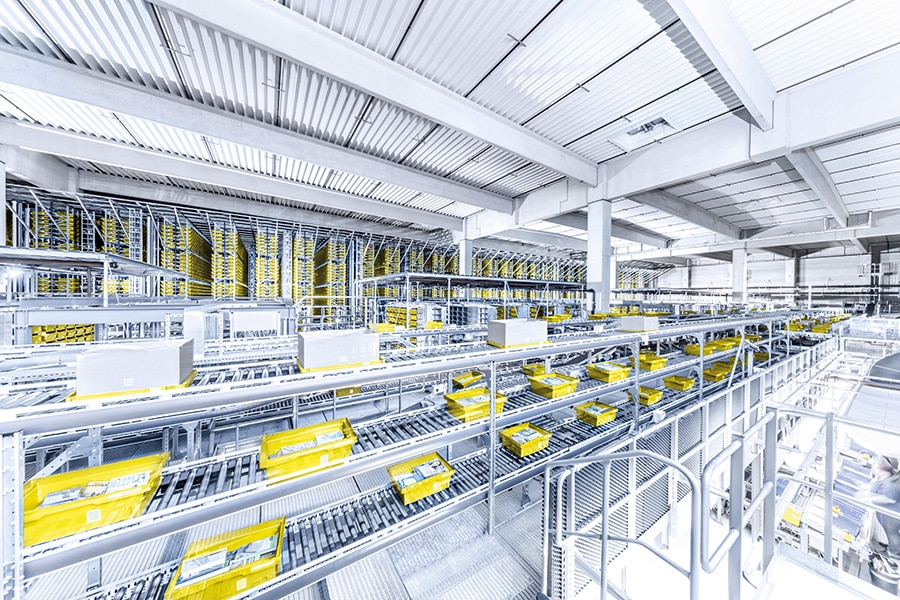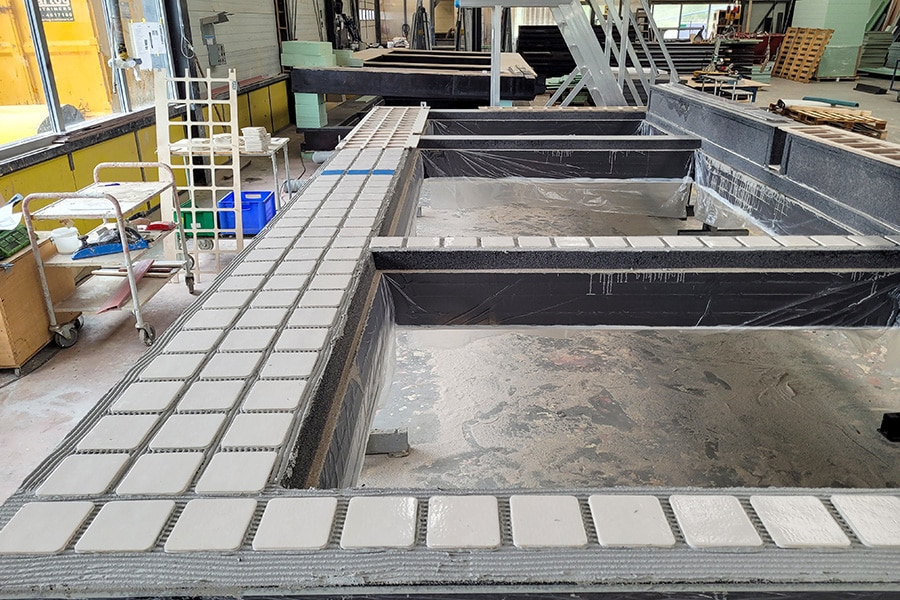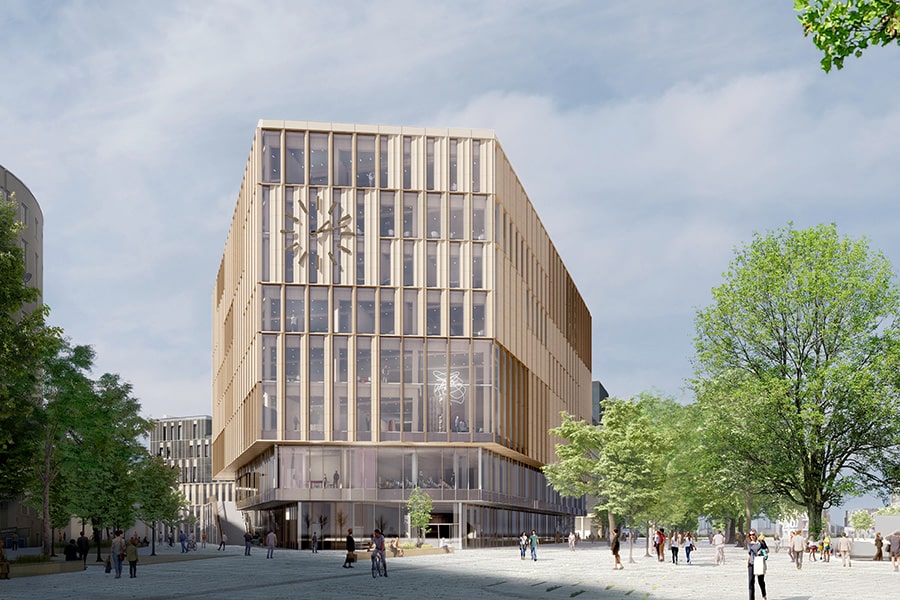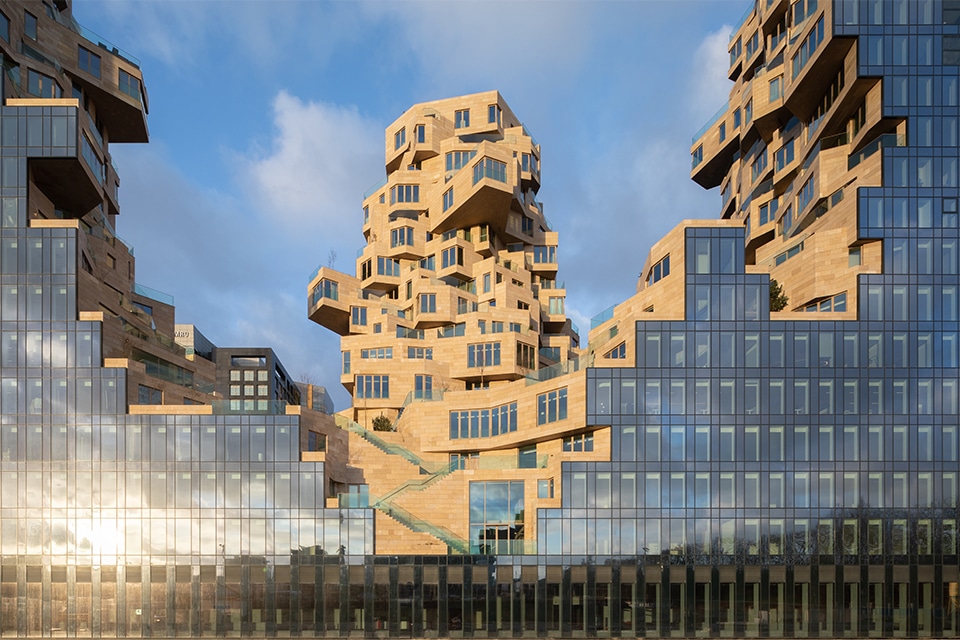
The next step in circularity
Sustainable processing of insulation residual material on site
Kingspan Insulation provides construction customers with (advice on) high-quality rigid foam insulation, where a sustainable life cycle, efficient use of materials and reduction of energy, CO2 and water are paramount. Without compromising on unique properties and design. "As a producer of high-quality insulation products, we not only feel responsible for the quality of our products, we also attach great importance to the sustainable and proper disposal of residual material," says David Braam, Business Development Manager at Kingspan Insulation. "With our Kingspan LIFECycle Service, we actively implement this. Together with various partners, we prevent residual material from our Kooltherm® and Therma™ insulation products end up in construction waste containers and eventually in landfills. This is how we work together to create a sustainable world!"

The construction industry is responsible for about 30 percent of all waste worldwide and a major consumer of raw materials. "Moreover, the built environment produces 39 percent of our CO2-emissions. With that, construction has an ecological footprint that cannot be underestimated, which must be drastically reduced to keep our planet livable in the future," Braam said. "As a market leader, we take our responsibility in this. In recent years, we have launched various initiatives to improve our products and processes, without losing sight of the current and very important product criteria for building insulation and application."

Minimal material, maximum reuse
In 2020, the Kingspan Group presented the Planet Passionate sustainability program, setting ambitious goals for the next 10 years. Here the focus is on circularity and reduction of energy, CO2 and water. An important pillar is keeping products and raw materials in the cycle for as long as possible. In its studies, Kingspan Insulation starts from the LIFECycle model, which considers all aspects of a product's life cycle. "Here we look beyond recycling, because this is by no means always the most sustainable solution," Braam emphasizes. "For example, it is much better to reduce or even avoid the consumption of raw materials. Since our insulation products are considerably thinner than the available alternatives, we have already taken an important first step in sustainability."
Toward waste-free construction
A second step is the Kingspan LIFECycle Service, for which Kingspan Insulation has partnered with Rondo Waste Management. "Small and large contracting companies, roofers, precast plants and other processors can recycle unused Kooltherm® and Therma™ insulation boards, cutting waste, EPS or Therma™ pallet strips and plastic packaging materials collect in the appropriate big bags or 6 or 9 m3 containers," says Braam. "In this way, we are taking the first steps towards waste-free construction as well as more efficient use of raw materials, thus significantly reducing our impact on the environment. Moreover, we are in line with an important trend in tenders, in which sustainable initiatives are increasingly rewarded. Several leading construction parties such as BAM Bouw en Techniek and Nijhuis Bouw have now embraced the Kingspan LIFECycle Service."
Three processing streams
Currently, the Kooltherm® and Therma™ residual materials are sustainably processed in three ways. "First, they are shredded and processed into new sheet materials," Braam says. "But residual materials are also shredded and processed into floor insulation products. The residual streams that are not suitable for this purpose are used as fuel in the cement industry. Because the residual products are burned under high pressure and at about 200°C, no chemical gases are released. Moreover, hardly any ash remains." By collecting insulation waste separately, Kingspan Insulation encourages sustainable reuse. "Moreover, our service is on average 20% cheaper than a construction or demolition waste container! So we combine convenience, a tidy construction site and lower costs for our processors as well as contributing to a sustainable and cleaner world."
Coming full circle
With the LIFECycle Service, Kingspan Insulation wants to start a flow. "Moreover, we are using this phase to map the quantity and quality of residual materials," said Braam. "In 2023, our factory in Winterswijk will start operating its own recycling machine. From then on, we also want to use the residual streams in our own production process, for the production of new insulation products. In doing so, we will complete the sustainable circle."
In the future, Kingspan Insulation may also want to take back insulation boards that are released during transformations or when a building reaches the end of its useful life. Open collaboration and information sharing in the chain is essential for this, according to Braam. "As a producer and supplier, you don't create a circular economy on your own. In order to be able to remove insulation boards from a building again and to guarantee a high residual value, for example, detachable buildings must be built. Moreover, clear agreements must be made about the separation and collection of the products. We would like to think along with you about this. We are happy to enter into discussion with the market to work out possible solutions."
Heeft u vragen over dit artikel, project of product?
Neem dan rechtstreeks contact op met Kingspan Insulated Panels.
 Contact opnemen
Contact opnemen




